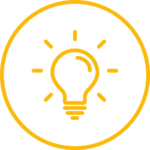Join a Global Community of International School Educators

Read blog articles written by industry experts

Attend thought-provoking events

Stay up-to-date on latest best practice

Network and connect with like-minded professionals

Build your skills with resources and guides
The Outstanding Schools Middle East Conference will take place live and in-person on the 4th & 5th of October 2023 at the Conrad Dubai, bringing together and facilitating dialogue between senior school leaders, passionate educationalists, key stakeholders, and inspirational thought-leaders from English-speaking international schools across the Middle East.
Join us to discover practical solutions and best practice insights to improve leadership skills, teaching and learning outcomes, safeguarding provision, wellbeing practices, as well as EdTech and management initiatives at your school.
Series Testimonials
Skills & Knowledge for School Staff
All Outstanding Schools conferences, summits and training are Continuing Professional Development (CPD) certified. Signed certificates are available upon request.
Outstanding Schools conferences deliver over 50 hours of CPD certified content, also available to watch on-demand after each event.












